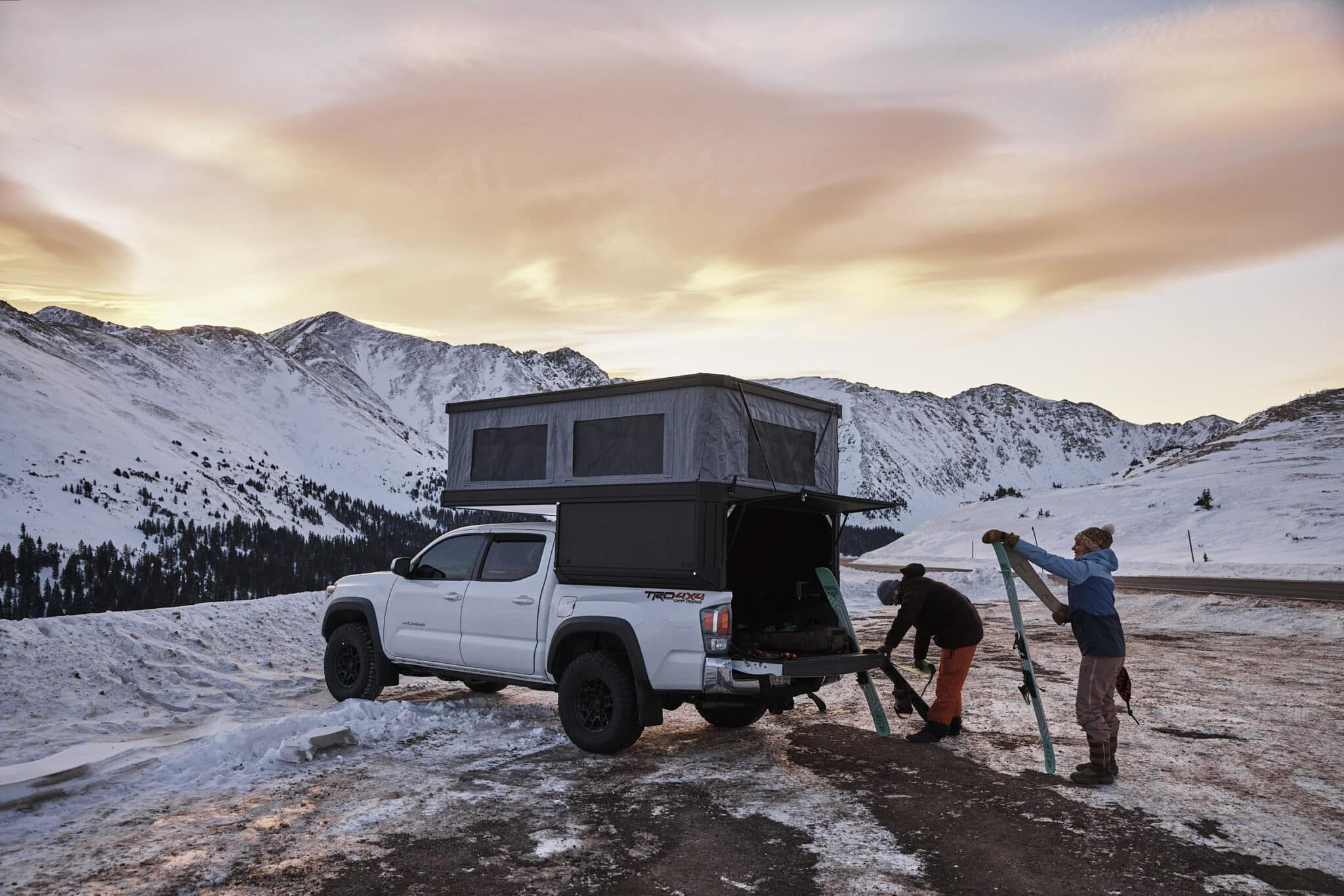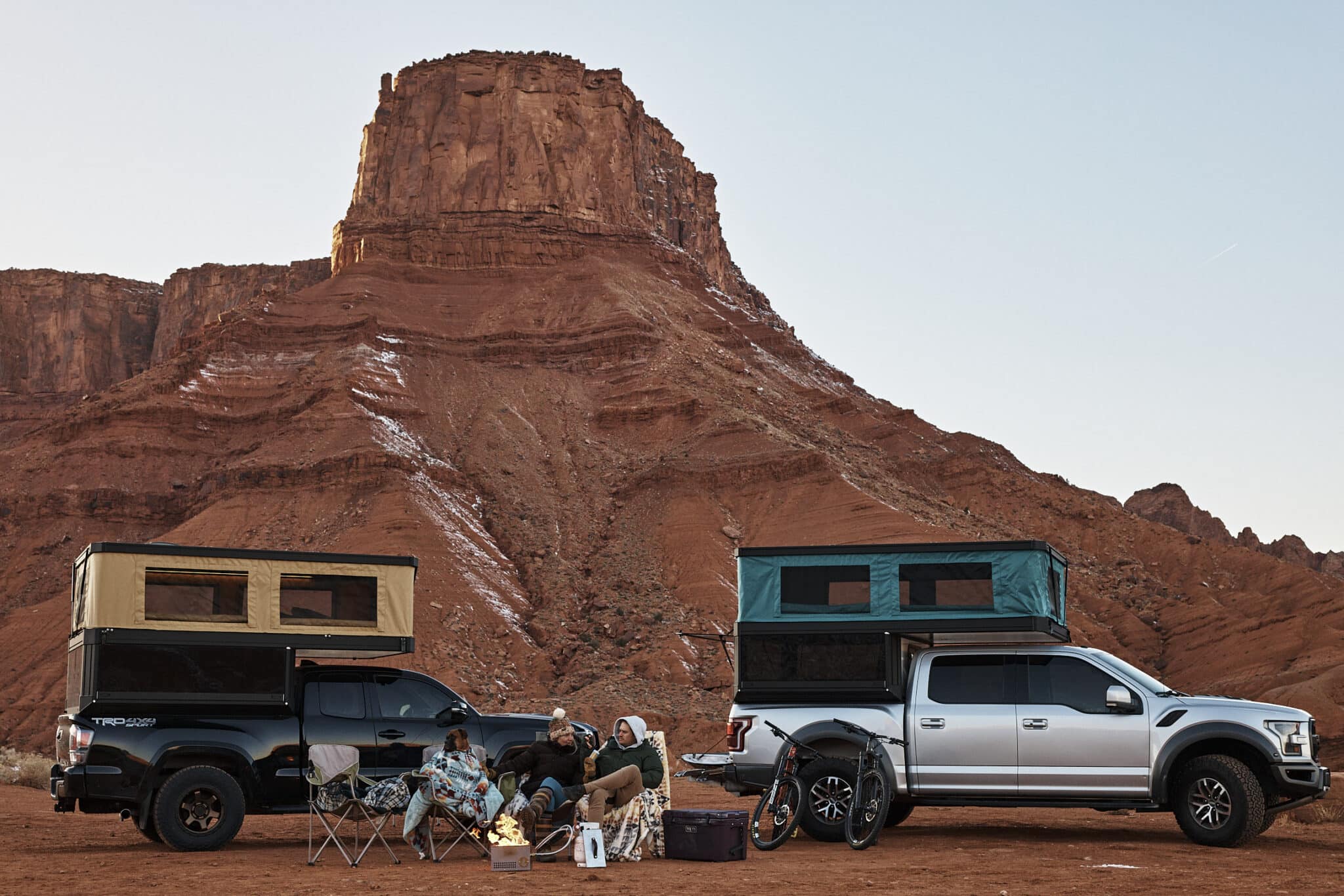
The Tune M1 starts at $12,999. (Courtesy Tune Outdoor)
A Denver-based startup specializing in outdoor accessories rolled out its first product in February — a fully customizable truck camper that retails for $13,000.
Named the Tune M1, the pop-up canopy from Tune Outdoor fits atop the beds of pickup trucks and can be customized in a variety of ways, including color, power configuration and window additions.
Tune Outdoor is headquartered in a 29,000-square-foot warehouse at 4633 Dahlia St. in Northeast Park Hill. The company has raised $1.5 million in capital from investors, according to SEC filings.
The company was founded by co-CEOs Sean Kepler and Bruce McGowan in 2020. They’ve held multiple executive positions at companies like VF Corp. and Crocs.
Tune has been operational since February and manufactures the M1 in batches as orders stream in.
Kepler said the company has sold about 50 of the new campers and has taken a different approach to the production process than competitors.
“I think there’s more value in our product than any competitor in the marketplace and we’re not gouging the margin,” Kepler said. “The build process is much simpler and much more straightforward. That certainly keeps the internal costs down, which ultimately keeps the retail rate down.”

Tune Outdoor is headquartered in Northeast Park Hill. (Courtesy Tune Outdoor)
The camper uses a lightweight aluminum compound used in the production of ship propellers that is durable and hail-resistant. It also features interior lighting with a sleeping loft equipped with a mattress and contains over six feet of standing height, according to the company.
Kepler said before the launch, the M1 went through a series of testing with different prototype models that were 3D printed and molded out of plastic and then aluminum.
“We printed pieces of extrusion in plastic that we connected with metal rods,” Kepler said. “We ran eight 3D printers for about 20 days in order to print all that plastic. Then we invested more heavily … in the hundreds of thousands of dollars. We brought in some additional investors to help us finance inventory and that whole cycle took us about two years.”
Kepler said the company works with aluminum and plastic suppliers in Boulder and overseas in South Korea. He said the production ratio is 30 percent international and 70 percent domestic.
